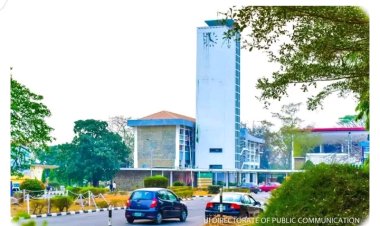Azura Power Completes N900m Solar Car Park Project at University of Nigeria, Nsukka
Azura Power West Africa has constructed a N900 million solar-powered car park at the University of Nigeria, Nsukka (UNN), providing a 240 KW solar installation to support the institution's energy needs.

Azura Power West Africa has completed a N900 million solar-powered car park at the University of Nigeria, Nsukka (UNN), marking a major milestone in renewable energy for the institution. The 240-kilowatt (KW) solar installation, part of Azura Power’s “Power to Change” programme, demonstrates the company’s commitment to corporate social responsibility and sustainable development in Nigerian communities.
Murtala Bello, Head of Corporate Affairs at Azura Power, revealed that the project aligns with Nigeria’s net-zero ambitions and President Bola Tinubu’s administration’s power sector reforms. The solar car park will not only guarantee a steady energy supply for UNN but also save the university approximately N150 million annually on energy costs.
Scheduled to be inaugurated by the Minister of Power, Adebayo Adelabu, on November 12, the solar installation is set to meet about 75% of the energy needs of UNN’s Faculty of Engineering, benefitting around 2,650 students. Bello emphasized that the project is aligned with the United Nations Sustainable Development Goals (SDGs), aiming to advance educational and social development through clean energy solutions.
“Azura Power is committed to supporting projects that promote sustainable livelihoods, health, education, and infrastructure,” Bello stated. “Our $1 million annual allocation enables us to drive initiatives that foster positive change. The solar installation at UNN will generate over 400,000 kilowatt-hours (kWh) of clean energy each year, providing a reliable power source that will enhance the learning experience for students.”

 Chris Oyeoku Okafor
Chris Oyeoku Okafor 



